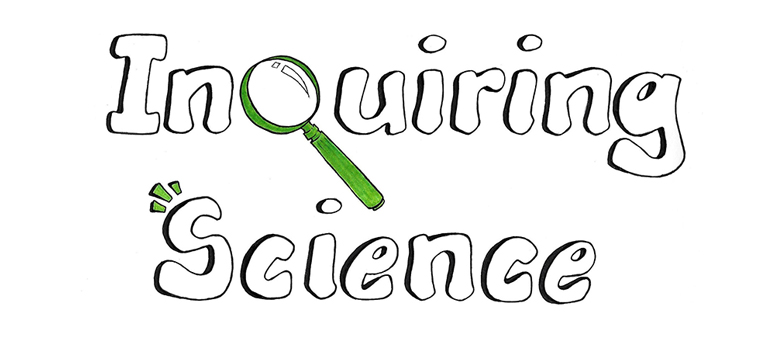
Connecting scientific inquiry to claims in the media
The Inquiring Science Conference will be held at Hughes Hall on Friday 15th May 2020, 1pm-6pm.
The conference is free to attend, but registration is required by signing up
Find further details about the Inquiring Science Conference 2020 programme.
For more information about the conference contact Laura Kerslake: laura.kerslake@hughes.ac.uk
Inquiring Science Year 1 report now available
The Inquiring Science Year One Report has details of our first year activities, initial findings and future plans.
Overview
Inquiring Science is a research project which teaches primary school children to think like scientists. During ten weeks of Inquiring Science sessions, children will learn to critically evaluate evidence, enhance their questioning skills, and begin to use different types of reasoning to develop explanations.
These skills are key not only for scientific inquiry, but also critical literacy skills for when children encounter information from wider sources, particularly online. There is such an overabundance of information available to children today that teaching them how to discern accurate, relevant, and reliable sources of information is increasingly important.
Approach
This project uses a design-based research approach to explore how children can best be prepared by education to think critically and protect themselves from false or inaccurate claims. As part of this investigation we will evaluate if children are better able to identify good sources of information from bad following the Inquiring Science sessions, which have been developed as a 10-week course for Key Stage 2 in UK primary schools.
We have completed pre-testing in all of the pilot schools, in which children took comparative tests individually and in groups of three, which were video recorded. We will complete post-testing in all participating schools by April 2020.
Funding
The project has been funded by Ron Zimmern of the PHG Foundation, and is conducted in association with The Bridge, Hughes Hall and the CEDiR group in the Faculty of Education.
Timetable
Year 1: April 2019 – April 2020 Development and trial of materials
Year 2 and 3: April 2020 – April 2022 Dissemination by SAPERE
Year 4: April 2022 – April 2023 Evaluation by Faculty of Education and project report
To date, the resources materials have been developed in conjunction with primary school teachers, head teachers and science coordinators to produce a 10-week resource pack. Teachers from five primary schools in Cambridgeshire and the surrounding counties took part in a two-day training session by Neil Phillipson. This training session introduced them to the resources and to Philosophy with Children (P4C). The resources will be trialled in schools between November 2019 and March 2020.
Research team
Principle Investigator
- Rupert Wegerif, Professor of Educational Psychology.
Co-Investigators
- Laura Kerslake
- Tim Lewens, Professor of Philosophy of Science
Research Assistant
- Jude Hannam.
Dissemination
We are working closely with SAPERE who will help with the dissemination and impact of the project as part of their provision of courses for primary school teachers. For our other dissemination activities, please click the link to the Inquiring Science report at the top of this page.
Contact
For further information please get in touch with:
- Laura Kerslake laura.kerslake@hughes.cam.ac.uk
- Professor Rupert Wegerif rw583@cam.ac.uk
